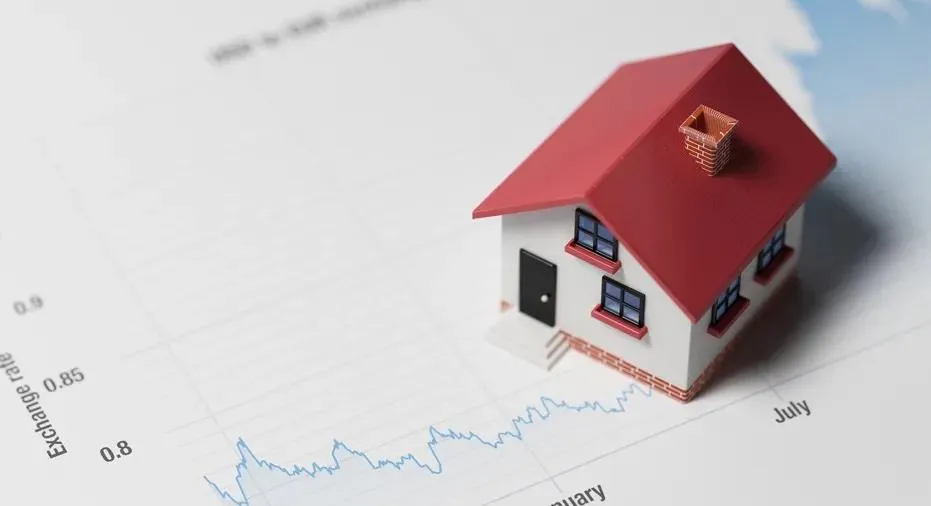
Part 4: The Seattle Tech Workers Ultimate Guide to House Hacking and Investing in Real Estate: Diversify your assets, grow your wealth, lower your taxes, and have fun while doing it.
Part 4; You made it!
This is going to be quick. So far we've covered a lot. In this post I want to tighten things up for you. Some will have read this and hated it. Other, I hope you, will be inspired. But this isn't a 'sexy' plan... but it does work.
Let's get into it.
No money down loans, First-time buyer programs, Get Rich Quick, Debt, Leverage, and Equity.
By now you can see this isn’t a “no-money-down” get-rich-quick scheme. In all actuality, I’m proposing you sacrifice your privacy by getting roommates for a number of years to help lower your monthly expenses and build wealth slowly over time.
More often than not, building any kind of wealth is more about what you’re willing to give up rather than what you are willing to do. Working Days, Nights, weekends, side hustles, 80-90 hours a week, forgoing vacations or weekends with friends - or even just having roommates. All sacrifices. Maybe it's not for you, and that's ok.
You can only lose money if you sell... or if you’re foreclosed on.
Remember my associate who held on to her 3 condos? She didn’t lose any money. She might have eaten a lot of PP&J’s, and beans and rice, but she’s better for it now.
Obviously, the objective is not to lose money, so here’s how to avoid that, not deter your asset and ride out any downturn, correction, or crash.
Understanding Cashflow.
Cash flow is the glue that keeps things together.
Cash flow is a 'Defensive position'
Cash flow is the icing on the cake.
Cash flow is (insert your analogy here…)
The running joke in real estate investing is that any property will Cash flow if you pay all cash to purchase it. Then, you’ve got 100% equity in the deal, no mortgage, and any rents you receive are 100% yours to keep.
However, that isn’t always reasonable.
But who says that you can’t be in a 20,30,40 or even 50% equity position in the home?
There are a few ways to gain an equity position. Most people know that your initial down payment is an equity position and home. That’s an easy one. Second, most people know that over time as your home or asset appreciates in value the difference between what you paid for it and what it’s worth now is an equity position, also an easy one.
Third, you can make material improvements to the property including renovations that force equity and bring the value of the home up. Obviously, that’s an expense because you’re paying for the renovations, but you’re also forcing equity.
A lot of folks do this in order to charge higher rent, or even refinance alone in order to pull some equity out of the home.
But, what if in your estimation of market cycles and world events, you decided to put more capital towards your principal and recast your loan? That would actually give you a further equity position in your home, and actually lower your monthly payment. In turn, that could increase your monthly cash flow, stabilize your rents, and help you wait out any potential economic storm with the added benefit of lowering your payment. The unfortunate truth is most investors attempt to try to keep as little money in the deal as possible so that they can take their capital and leverage it elsewhere. But running to lean can be a mistake.
Summary:
Your rent is costing you WAY more than you think.
The lost potential appreciation is like salt in a wound
Your dream home can wait, wealth takes time to build
Real Estate is not “Stocks” stocks are volatile. (even your total compensation can take a major hit because your company’s stock underperforms, or you don’t stay long enough to fully vest - that unrealized income can really hurt you in the long run.)
Having a plan and taking advantage of “Primary residence” Interest rates can be the easiest way to acquire rental property quickly and ensure you have a great low-interest rate compared to what you’d need in order to buy an investment property straight away.
You can mitigate against black swan events, changes in the market, and market cycles.
The tax benefits of owning an investment property far outway the drawbacks of being a landlord.
This is a “Get Rich SLOW” plan. It’s not for everyone. Not everyone is willing to make the sacrifice, and that’s okay. This isn’t the only way.
Again, this is not for everyone. Not everyone is willing to make the sacrifice, and that’s okay. This isn’t the only way.
You could just buy a home every 3-4 years as your primary and keep your former homes as investments (or every year, I don’t know your income). I do know that the lenders' paperwork when you sign for the loan it says you plan on living in the home for at least the subsequent 12 months.
Look, if that made sense to you, if you like the idea, we should connect. Real Estate isn’t complicated, but there is a lot of nuances, and it really does come down to your specific situation. If you read this and you don’t want to be an investor, I hope you saw the math and how the sunk cost of not owning is really hurting you.
Maybe you don’t think it’s the ideal time to purchase, but the best time to start is early. You'd be surprised at how many people don’t want to get started early, but when they do they find something horrible on their credit that postpones them. They wait until the “Perfect” time but find out that they need to work on something - and these are high-income people I‘m talking about.
Don't wait. Even if you aren't in a position to buy now, it doesn't hurt to see what your numbers look like, and if there are any obstacles in your way that maybe you didn't know about...
Again - Start early. Just because you got approved, doesn't mean you have to buy anything, but you can't buy anything without a pre-approval.
If you're making a move, reach out, and lets chat. Happy to brainstorm and come up with a solution that gets you a tangible and actionable plan that fits your unique situation.
Best,
Justin H Gazabat
Broker | PNW, Seattle, Ballard, East Side
Your Friendly Seattle Neighborhood Real Estate Professional.
P.S. I sincerely appreciate your continued trust and generous support of me and my business. It truly means the world to me when you think to connect me to your friends, family, and co-workers.
P.P.S. If anyone in your social or work circles is considering a move, just send an intro text or email with their best contact info, make sure everyone is CC’d and I’ll take care of the rest! I promise to take great care of them, serve them well, make you look really good in the process. Plus help them get great results! Referrals are crucial to our business, and we genuinely value the opportunity to serve you and your network.
Justin H Gazabat

Justin H. Gazabat

Justin H. Gazabat


Compass is a licensed real estate broker and abides by Equal Housing Opportunity laws. All material presented herein is intended for informational purposes only. Information is compiled from sources deemed reliable but is subject to errors, omissions, changes in price, condition, sale, or withdrawal without notice. No statement is made as to the accuracy of any description. All measurements and square footages are approximate. This is not intended to solicit property already listed. Nothing herein shall be construed as legal, accounting or other professional advice outside the realm of real estate brokerage.

